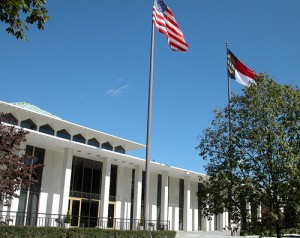Auto Insurance Reform Delayed in North Carolina
 Legislation has been postponed to 2013 for North Carolina auto insurance laws. It’s a hotly debated subject, and while many agree that reform needs to take hold, not many agree on how to go about it. It’s a complicated subject, and legislators want to take their time to get it right.
Legislation has been postponed to 2013 for North Carolina auto insurance laws. It’s a hotly debated subject, and while many agree that reform needs to take hold, not many agree on how to go about it. It’s a complicated subject, and legislators want to take their time to get it right.
Lawmakers in favor of reform were looking at two big issues. The first of these is changing the way North Carolina sets rates, which is different from all other states. The second issue is the state’s standards on high risk drivers.
Adopting changes in these areas is thought to save policyholders more, as well as encourage competition among insurance companies.
Potential Changes
Currently, the North Carolina Reinsurance Facility provides insurance for 1 million drivers, or 20% of North Carolina drivers.
According to the Insurance Journal, only around 25 percent of the drivers insured by the North Carolina Reinsurance Facility are actually bad risks. These individuals pay 30% more than the average policyholder on their premiums.
The other 75 percent of this risky pool are the “clean risks”. What this means is that they have clean driving histories, but have other factors making them high risk choices like: having a low credit score or being unemployed.
The Insurance Journal states, “Since those drivers pay lower risk pool rates, the pool has an annual shortfall of $150 million. As a result, all state drivers end up paying a surcharge of $20 per year.”
Changes made to this risk pool could help competition; if insurers, for example, were allowed to charge these individuals higher rates it would result in savings for drivers all around. It would minimize, if not get rid of the roughly $20.00 surcharge that that all drivers are paying annually. The Fair NC, a group of insurers, has proposed this idea, among others.
Setting Rates
The other change that would otherwise be adopted is to the way North Carolina sets rates. Currently, rate requests are filed by insurers with the North Carolina Rate Bureau. The bureau, based off of these requests, then sets suggests a base rate for the entire state, which needs insurance commissioner approval.
The way things normally go, is that insurers file their rates individually with the Department of Insurance. While many believe North Carolina’s methods are medieval and require updates, North Carolina boasts some of the lowest insurance premiums in the southeastern region of the United States.
If you’d like to have up to date information on North Carolina’s insurance laws and keep up with new ones, please visit our website.
Looking for the most affordable insurance rates in town? Just take a moment to answer a few questions, and you can get discounted rates from competing insurers in your area!
